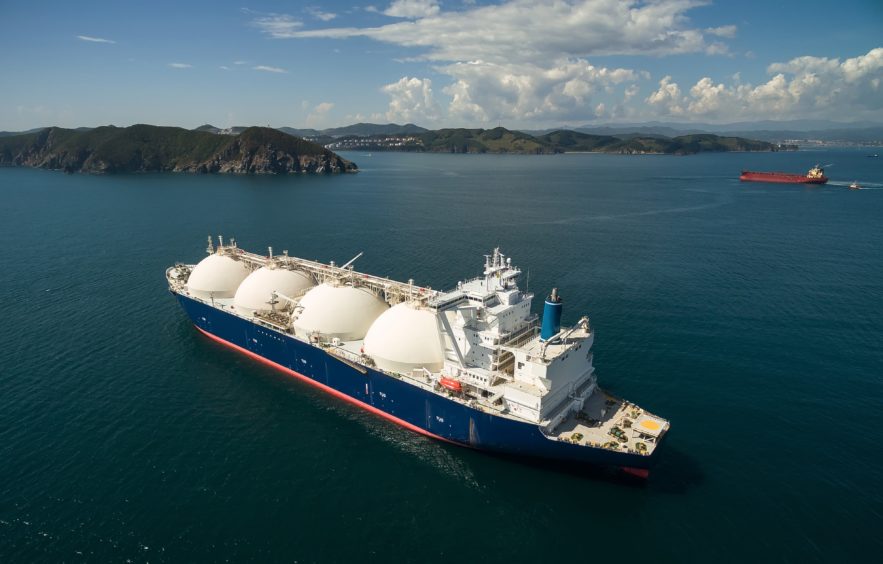
Extraordinary global gas prices are benefitting Australian liquefied natural gas (LNG) exporters. At current spot prices Australian LNG producers can make even larger margins on spot sales than US exporters, with estimated margins of over US$30 per million British thermal units (MMBtu), due to shorter shipping distances to Asia, said Australian consultancy Energy Quest.
“As of 14 December, the Asian LNG spot price, the JKM, has hit US$39.02/MMBtu, rising on stronger European gas notwithstanding weaker Asian demand. The UK National Balancing Point Price (NBP) on 14 December was US$42.90/MMBtu, with cold weather, low Russian supply, and weak stock levels. Europe entered the winter season with gas storages at 10-year lows, with levels falling fast and no step-up in Russian deliveries via existing routes. In Asia, there has been mild weather and coal and gas inventories have been restocked. However, European gas prices have been driving Asian prices, which are still expected to remain high, with JKM futures above US$30/MMBtu through to April and remaining above US$24/MMBtu for the remainder of 2022,” Energy Quest said in its latest monthly report.
High prices incentivising US exports
“As at the end of November the US Henry Hub gas price was at the historically high level of US$5.49/MMBtu but US LNG exporters, buying gas at Henry Hub could make a margin of US$25/MMBtu with spot sales to Asia. Three of the top five US LNG export countries in October were in North Asia: China (number one destination), Japan (number three) and Korea (number five). Overall, the US shipped 94 cargoes in October, getting close to Australia’s 105,” reported Energy Quest.
Australian LNG exports benefitting
At current spot prices Australian LNG exporters can make even larger margins on spot sales than US exporters, with estimated margins of over US$30/MMBtu due to shorter shipping distances to Asia.
Australian margins on oil-linked contracted cargoes are considerably less at around US$7.50- 10.00/MMBtu, but still healthy. In October, the average price of Australian cargoes delivered to Japan was US$12.32/MMBtu (US$10.54 in September) and to China a record US$11.34/MMBtu (US$10.74/MMBtu in September, reported Energy Quest.
Interestingly Australian cargoes are competitive with the US. Average prices of US cargoes in October were US13.48/MMBtu to Japan and US$15.36/MMBtu to China.
“Australian exporters are doing particularly well from spot sales. In November there were three spot cargoes reported from the east coast and four spot cargoes from the west coast (7% of total shipments). There was one spot cargo from the North West Shelf, two cargoes from Darwin LNG, one cargo from Ichthys, one from APLNG and two Petronas cargoes from GLNG. At the current JKM price, individual spot cargoes could be worth up to A$200 million,” said Energy Quest.
Recommended for you

